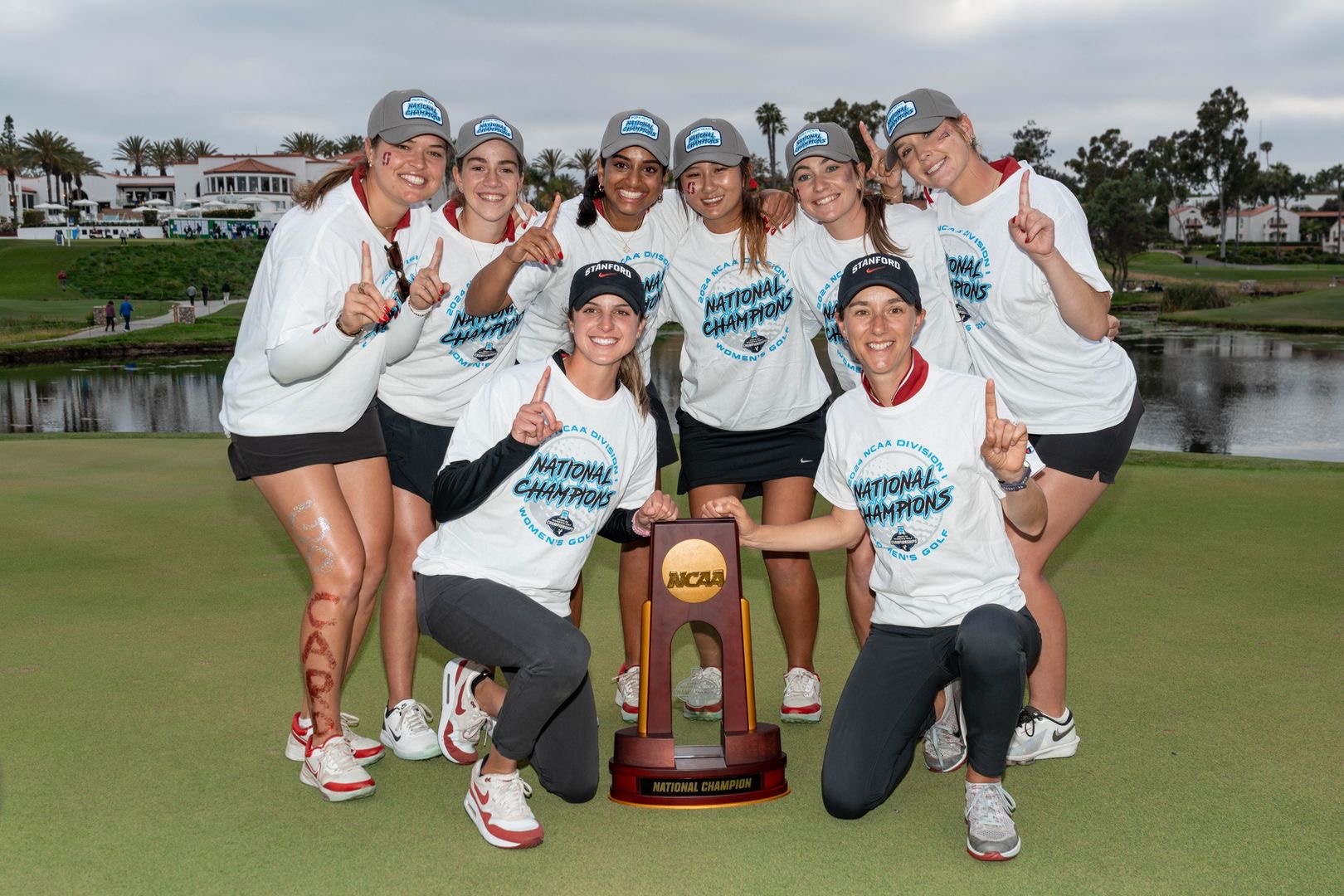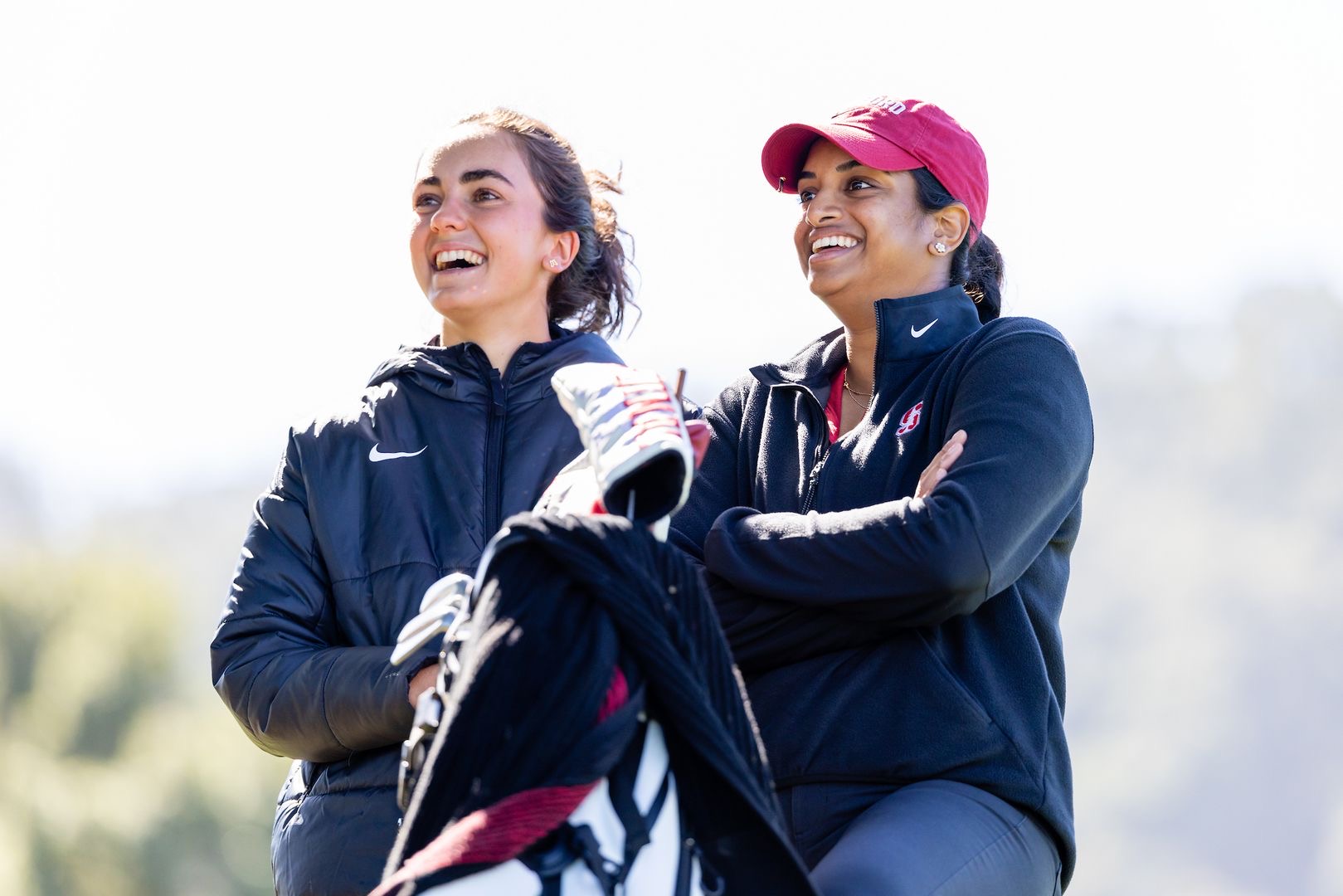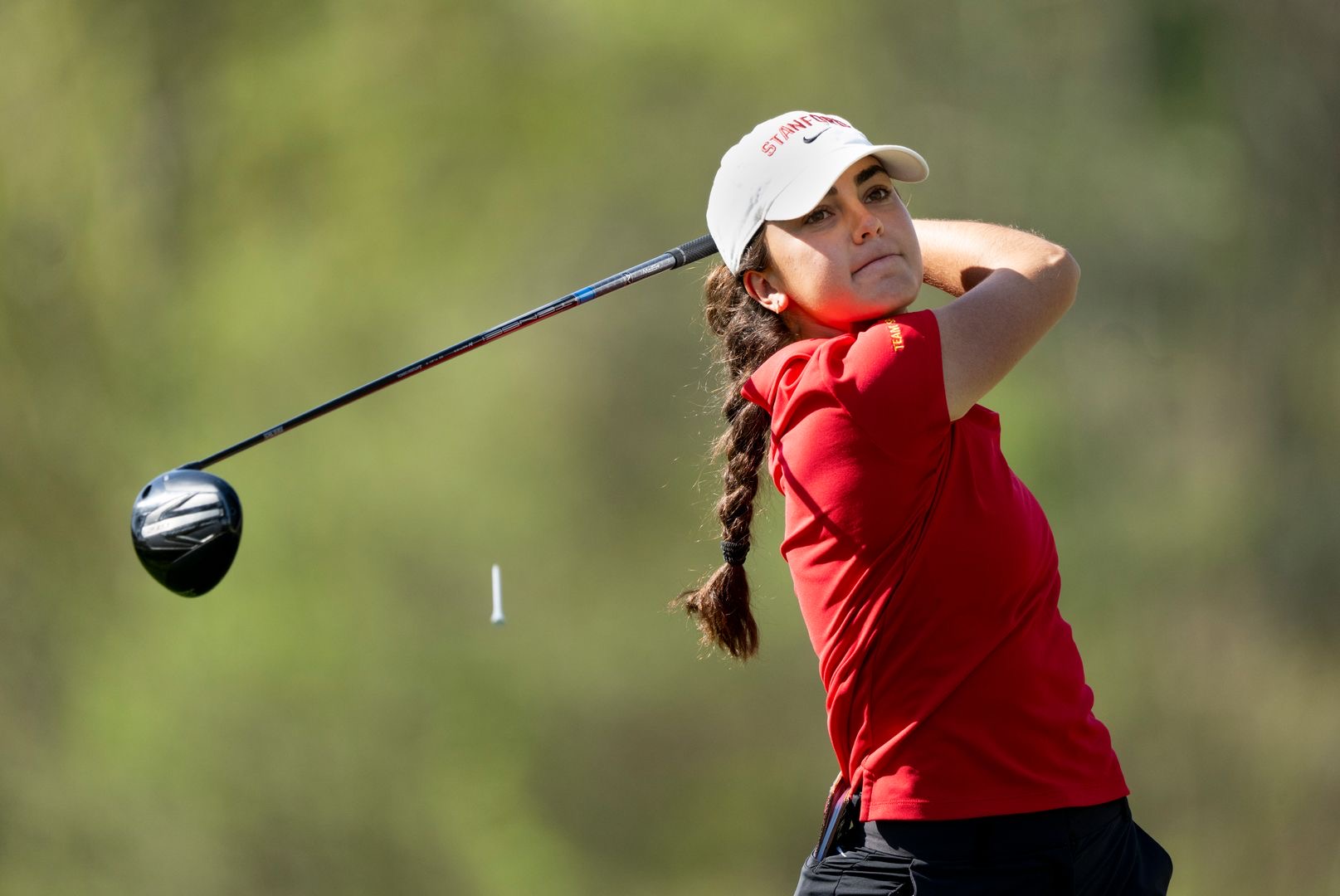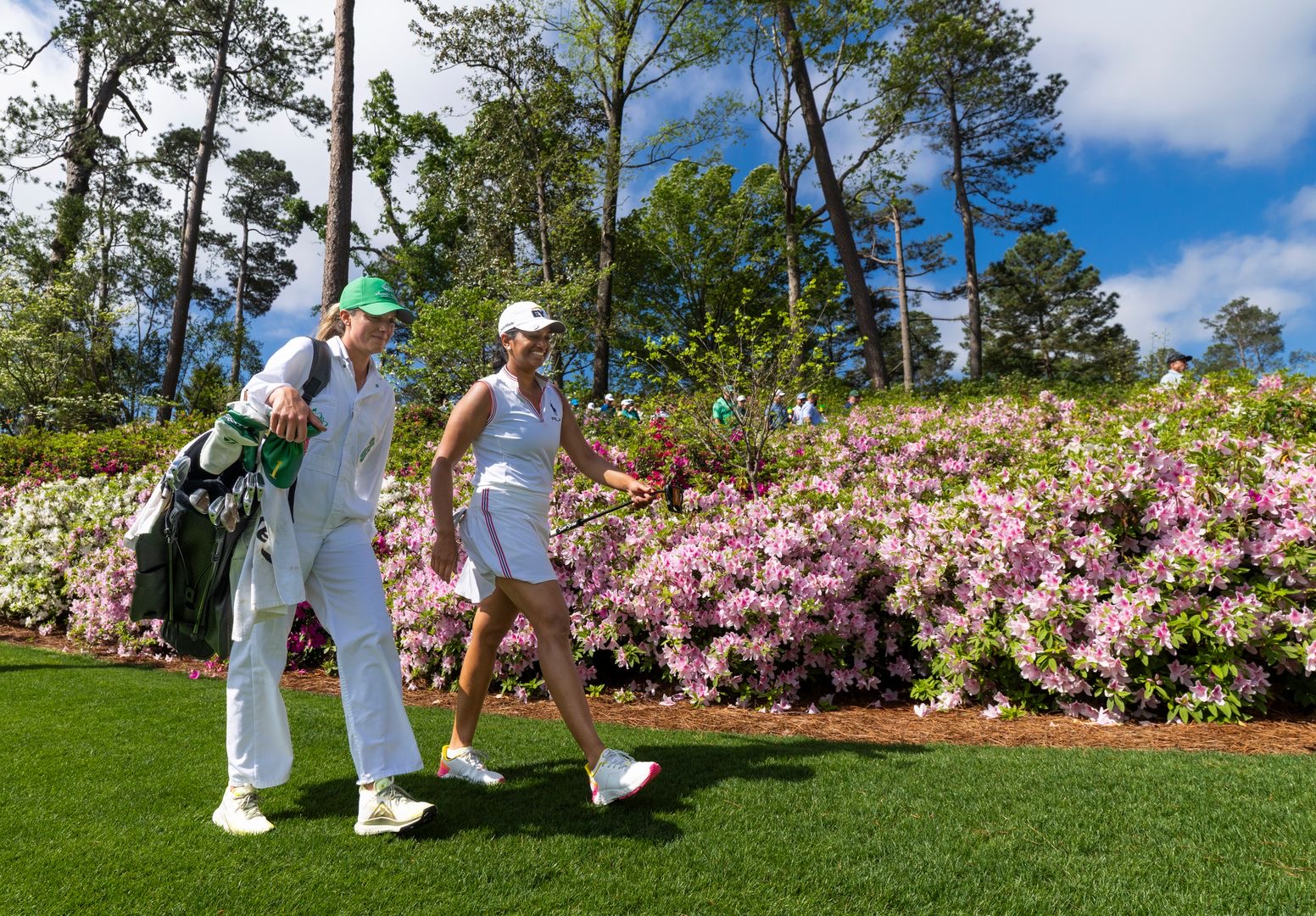CATEGORIES
- Latest News
- Interviews
- Golf Travel
- Features
- Juniors
- Competition
- Events
- Health
- Equipment
- Fashion
- Archive
INFORMATION
CURRENT ISSUE

SUBSCRIPTIONS



Words: Mackenzie Puryear
Legacy is a word that evokes not only greatness, but a lasting footprint etched in history. Yet Stanford Women’s golf is not simply a legacy; it is the rise of a dynasty.
Over the past decade, women’s golf has become one of the fastest-growing college sports in terms of scholarship opportunities, media coverage, and program investment. It is a unique college sport in that it transforms an individual game into a team culture, and it is taking the United States by storm. Female golfers are flocking from all over the world to play at the collegiate level!
“It was a pleasure to witness history and also, know Rose Zhang as a person and a competitor. She was like an artist at work whenever she played and I loved seeing her mental fortitude and strength on a daily basis.” Stanford Women’s Head Golf Coach spoke of her time coaching LPGA champion Rose Zhang.
And at the heart of it all, Stanford stands as a mecca for excellence and tradition. Their golf program has seen icons like Tiger Woods, Rose Zhang, and Rachel Heck pass through. It is a place where players not only make history but carry forward a legacy that is quickly evolving into a dynasty.
Speaking of history, not only has the Stanford women’s golf team won two NCAA championships in three years, but in the 2025 Augusta National Women’s Amateur (ANWA) held at the beginning of April, six Stanford ladies teed it up—and every single one made the cut. That’s a stat that head coach Anne Walker believes will stand for years to come. “Having six current, active roster players make the cut in the ANWA is unprecedented and is a simple marker of the strength of our team.” Freshman Andrea Revuelta captured a fourth-place finish at the ANWA, recording scores of 70-66-72. For Revuelta, playing well in the ANWA was a major step forward in her confidence.



The freshman from Spain found herself out of the spring lineup due to injury, so playing at Augusta was her first tournament appearance of the year. Posting three solid rounds on one of amateur golf’s biggest stages solidified the practice that Revuelta did in her time away from competing.
Not even a month later, Revuelta found herself back in contention and closing out an individual win at the ACC Conference Championship after rounds of 67-67-68. “Honestly, the ACC was half the pressure I felt at ANWA,” Revuelta said. “The goosebumps you feel and the nerves you have, there’s no practice drill that’s going to even come close to that.”
Meanwhile, junior Megha Ganne posted a historic low round of 63 to open the ANWA and finished only one stroke behind her teammate,
Revuelta.

She had assistant coach Brooke Riley caddying for her during the tournament, which she described as a surreal experience. Walking the fairways of Augusta National in the final round with Coach Riley was something she will never forget.
Ganne credits her experience competing, especially at so many college events, as one of the keys to her success at Augusta.
“Every tournament is just another layer that you learn about yourself. And golf is this never-ending cycle of a couple of steps forward, a
couple of steps backward and just finding ways to make yourself better. So, I think all the lessons you learn in college golf, and with
our playing schedule allowing us to play in so many tournaments, it kind of expedites how you want to approach tournament golf. So, having
all of those [college] tournaments leading up to ANWA to build up feel in my game is really helpful come April.”
“Playing Augusta never gets old. It gets better every time. – Megha Ganne
Sure, it’s understandable how the best women’s golf program in the country can help prepare players for high pressure, national tournaments.
But how does a program even begin to build such a dynasty? How does it win multiple national championships in such a short amount of time?
Coach Walker explains that part of why women’s golf has evolved so quickly over the past decade is because it serves as a training ground for those aiming to compete at the highest level.
The best way to prepare for that next step—even the LPGA—is to be immersed in the top tier of amateur golf. Competing with the best players, while at the same time studying for a degree.
It’s not only a great opportunity, but preparation for all aspects of life.
As a result, it attracts the best players in the world to want to play in college. But as far as winning the National Championships—well,
there’s no magic formula for that.
According to Coach Walker, the journey to the National Championship was anything but smooth last year. But then again, smooth is hardly the adjective most sports teams or athletes would use to describe the path to a big win. Most come with their share of highs and lows—trials, doubts, and triumphs along the way.
Yet, for Stanford, the journey included battling player injuries and tough last-minute coaching decisions. Amidst the uncontrollable factors mixed in with tough decision-making, Coach Walker says they try to keep their coaching philosophy simple at Stanford.
Golf is an individual game after all.
Coach Walker explains, “The players that we are recruiting are highly accomplished and arrive on campus with a great knowledge of the game, their skill set and much more. They usually have a strong team around them, and we don’t want to disrupt that, simply enhance what is already in place. If we can help them fine tune one or two areas, then over the course of four years, their progress will be noticeable.” Ganne, who has been a part of the team for each win over the past three years, says that approaching team golf is very different than the amateur career she had leading up to college. The way the team approaches tournaments and dissects golf courses is crucial.
But she notes one other very important aspect of winning championships, “We just have really good team values and a culture that has led to a lot of success on this team. Even though we have a lot of great players, that’s not the only thing that it takes to win a national championship. So, I think that’s been a new and exciting challenge since I’ve come to Stanford and it’s really special.”
Yes, Stanford has had some amazing players come through the program, such as Rose Zhang and Rachel Heck. While Ganne finds a lot of inspiration in those players, she also points out the depth of each roster over the years at Stanford.


“Rose and Rachel are super inspiring and definitely have been two of the biggest faces of our program. But I think the depth of all of the rosters and all of my teammates that I’ve had have inspired me in equally cool ways, which is a little bit more behind the scenes. What you don’t see is inside the program—people are so talented on and off the golf course and everyone has something to offer. So that’s why I chose this program—because I know that it goes beyond golf and this team really shows that. I’ve really learned a lot from all of my teammates.”
Perhaps, it was all a plan from Coach Walker from the start.
The wise leader understands that winning golf tournaments is more than solely assembling excellent players. Creating a winning team culture starts with the recruitment process.
With so many great golf players entering college now, Stanford’s coaches look beyond exceptional playing ability. They seek golfers with high character, a desire to excel in the classroom and chase National Championships.
Coach Walker explains that when players’ interest levels and drive extend beyond the golf course, then they respect each other and that respect for one another leads to a strong locker-room culture. One that can ultimately win not only one National Championship, but multiple.
The success that Stanford has achieved as a team, combined with the individual accomplishments of each player, is remarkable.
Yet, the talent level for college women’s golf seems to only increase with each incoming class. Coach Walker is right: with so many great players, it takes a special group to come together as a team to win the National Championships.
As a player, finding the right college can be daunting.
But consider these wise words from a freshman who just experienced the process and now finds herself at Stanford, fresh off an ACC Conference Championship individual win.
“Everybody ends up in the right spot.” Andrea Revuelta shared. “Each college is unique in its own way, and it’s molded for different individuals. You’re going to experience so many things besides golf. So obviously you want to go to the best program, but you want to go to the best program for you. And that may look different for different individuals.”

ECCO BIOM H5
Put your best foot forward on the course in these stylish and supremely functional women’s golf shoes by ECCO. We’re loving the BIOM H5
model pictured here.
RRP AUD 349.95

R.M.
Williams Beechwood Padded Vest
Time for a cool change. This elegant vest is a great layering piece for a round of golf. Fashion on the fairway indeed. Crafted from an
organic cotton blend woven in Italy. How lovely is this chocolate colour!
RRP AUD 299

PXG Secret Weapon Mini Driver
Add to bag…literally. The PXG Secret Weapon is a terrific mini driver that strikes the perfect balance between control and power. Built for
distance!
RRP AUD 899.95 to 1,299.95

Fressko
Coffee Cup
The best reusable coffee cup on the market. Perfect for the golf cart (filled with a delightful coffee) to get your game started. There are
plenty of colours and sizes available and they make great stainless steel drink bottles and glass flasks - ideal for smoothies.
RRP AUD 39.95